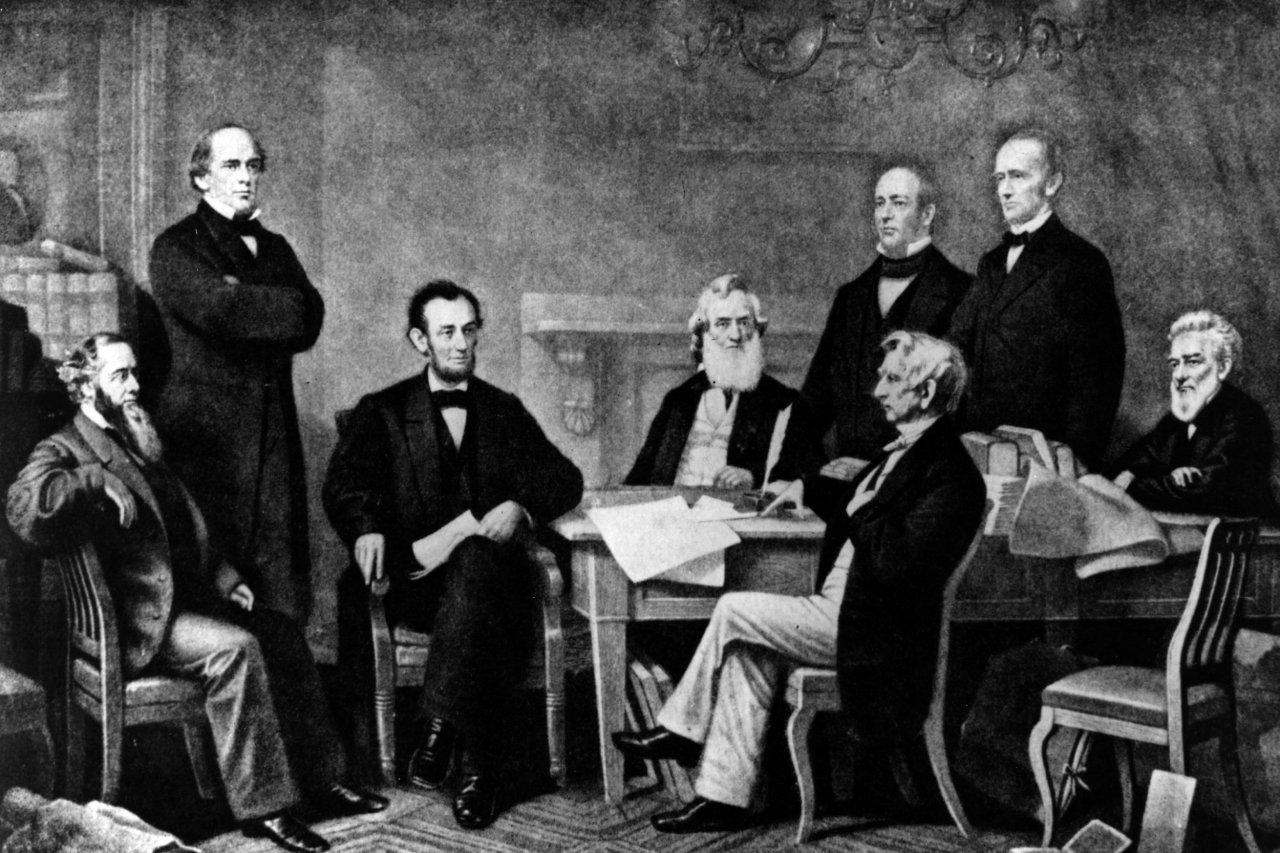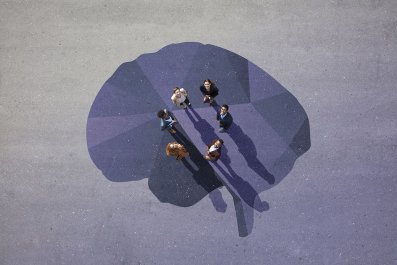{"id":"50998","type":"widget","widget":"video","ratio":"16by9"}
Did you know that Abraham Lincoln was a Republican?
Kanye West, American rapper and 40-year-old eighth grade history student, just found out. And boy, is he shaken.
West, who seems to be experiencing some sort of political and philosophical awakening in real time since praising President Trump and declaring the 45th president "my brother" six days ago, tweeted out a text exchange on Monday with someone named "Steve." In the texts, Steve notes that Lincoln "freed and protected the slaves and he was Republican. Republicans were the ones who's [sic] helped black people." (The tweet—which prompted an avalanche of people trying to explain grade-school history to a major rapper—has since been deleted, but you can find it archived here.)
This is fairly common Republican rhetoric: By proclaiming itself the party of Lincoln and the Abolitionist movement, the modern GOP easily obfuscates the ways in which its racial politics and political coalition drastically transformed throughout the 20th century. In other words: It's a long, long road from Abraham Lincoln to Donald Trump. And West's friend Steve seems to have confused the rapper by failing to give any historical context for political party realignment. (West subsequently tweeted out some texts from John Legend trying to explain some of this, but that tweet has also been deleted.)
We asked Jim Cullen, a high school history teacher at the Ethical Culture Fieldston School in New York and the author of The American Dream, among other books, to explain the changes in the Republican and Democratic parties to West. (Please, can somebody text this link to Kanye?)
Kanye has just discovered that Abraham Lincoln was a Republican. He tweeted an exchange saying that "Republicans were the ones [who] helped black people." Do you think his tweet is misleading, given the two-party system as it exists today?
Well, it's factually correct. The Republican party was the party of Lincoln and it was the party of African Americans for at least a half century after the Civil War. That didn't really begin to change until the 1930s and didn't finish changing until the 1960s. To illustrate the point, the reverend Martin Luther King Sr. was a Republican, as most African Americans were.
Can you give a brief summary of how the GOP voting coalition has changed since the Civil War and Reconstruction era?
For about 70 years after the Civil War, African Americans were a key voting bloc for the GOP, both in the South, and increasingly in Northern cities, which could be very competitive in local, state and federal elections. This was especially true for middle-class and entrepreneurial African Americans. The first wedge in this coalition appeared during the New Deal, notably with the Executive Order 8802, signed by FDR to prohibit discrimination in the defense industry. Black flight to the Democrats intensified over the course of the 1960s, and was largely complete by the end of the century.
Are history students often confused when they find out that the Republican party of the nineteenth century was more aligned with racial progress?
Yes. My students are surprised to hear this every time I discuss the subject.
Does it surprise you that Kanye West, a 40-year-old man, would not have learned this at some point in his youth?
I imagine he probably did learn about it at some point in his youth. As a history teacher, I have a healthy modesty about what students actually retain from what their history teachers teach them [laughs].
In what ways was the Republican party 150 years ago different from the Republican party of today?
The main difference is probably its stance towards African Americans. [But] there's enormous continuity in the Republican party. The Republican party has, for most of its history, been the party of the White Anglo-Saxon Protestant. The Republican party has been the party of business. Once upon a time, being the party of business meant actively seeking government intervention in the economy with things like high tariffs. Early in the twentieth century, that began to change.
What started the process of realignment?
President Roosevelt, but it was a very tentative start. It had to be, because FDR was a Democrat and the Democrat party in the 1930s was an uneasy coalition between Northern urban ethnic groups—the working class—and Southern white farmers. The Democratic party was the party of the Ku Klux Klan. The Klan dominated the Democratic party well into the 1920s.
One key figure that needs to be part of this conversation is not Franklin Roosevelt but, his wife, Eleanor. Franklin could not come out in favor of an anti-lynching bill in the 1930s. He was concerned about the political consequences of Democrats in the South. So FDR was mum on a lot of racial issues. But she was quite vocal—a real lightning rod.
You mentioned that this process completed in the 1960s.
The transitional figure here is Lyndon Johnson—not President Lyndon Johnson, but Senator Lyndon Johnson. Johnson's mentor in the Senate was Richard Russell of Georgia, who was a committed segregationist. Johnson helped engineer the Civil Rights Act of 1957, which was a largely toothless piece of legislation but of great symbolic importance because it was the first real civil rights legislation since Reconstruction. And the reason why it happened was because Johnson was trusted by the segregationist wing of the party not to overdo it.
Related: Donald Trump's weird obsession with Andrew Jackson
In one of West's tweets, John Legend informs him that Republicans "have become the party of the Confederacy." Do you agree with this assessment?
You have to be a little careful with language like "the party of the Confederacy." As far as I know, there's no discernible coalition in the Republican party advocating secession, and tarring the whole party with a Confederate brush does the left no favors. But there's no question that there is a white supremacist element in the Republican party. Richard Nixon first exploited it with his "Southern Strategy" in 1968, and GOP politicians have been appealing to it, directly and indirectly, ever since.
Does the current Republican party sometimes exploit its affiliation with Abraham Lincoln for political gain?
Well, politicians always read history selectively. A good example is the way in which there's a Republican version of Martin Luther King Jr. He becomes the figure of judging people not on their color but on the content of their character. Which is an authentic King statement, but is enlisted in a sort of libertarian project. That's their version of King. The Democrats' version of King is the King who was an avowed liberal in the sense that he called for government intervention on behalf of African Americans. I happen to believe the latter version is closer to where King lived most of his life. But it's not a lie for Republicans to invoke the other version of King. History is on the shelf to be used.
How can historians resist the impulse to do what you just described?
Part of what giving people a historical education involves is the recognition that there's always more than one side of a story at play at a given time. People say, "History will judge," as though history is just a static thing. History is not a static thing. The past keeps changing.












